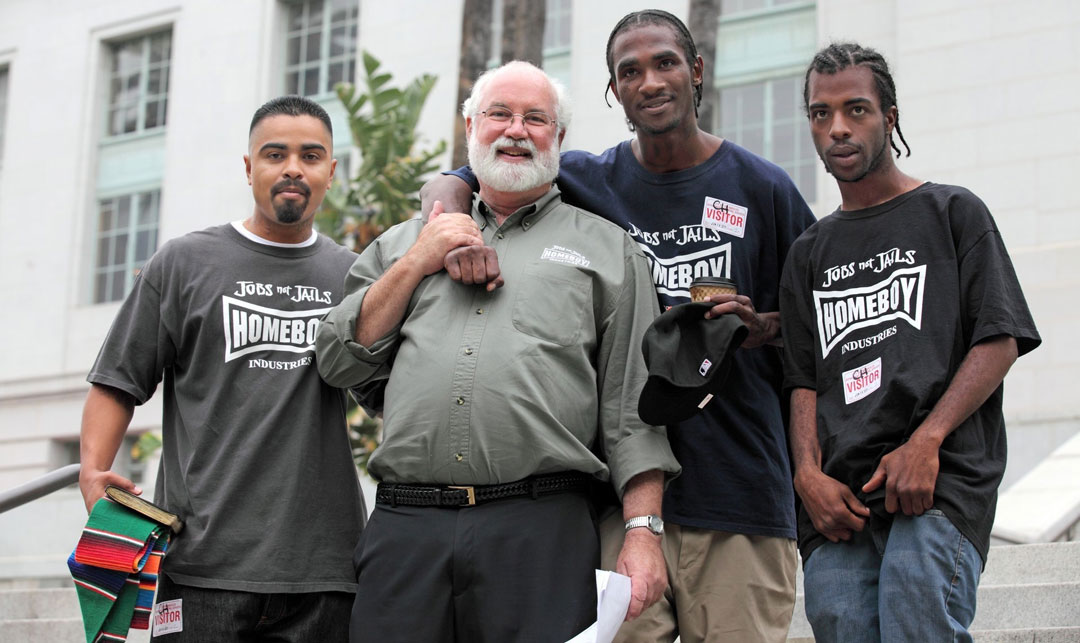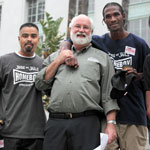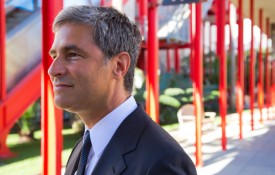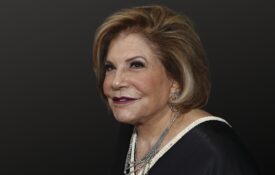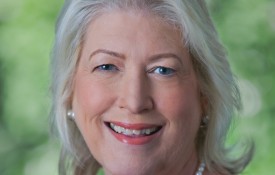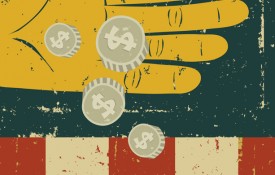Seventeen years ago, during a visit to a Los Angeles County juvenile detention facility, Greg Boyle handed fourteen-year-old gang member Wilfred Lopez his card with the invitation, “Come see me when you’re ready.” Ten years and several incarcerations later, Lopez was ready to change his life. When asked how he remembered Boyle at age twenty-four after just being paroled, he says, “It was his no-matter-what-ness that stuck in my head. He gives love, kinship, and unconditional acceptance…no matter what, and with no expectation of anything in return. That was unbelievable to me.”
Boyle, a Jesuit priest, founded Homeboy Industries nearly thirty years ago to provide love, hope, and the promise of a more authentic future to formerly gang-involved and previously incarcerated men and women ready to change their lives. The former pastor of Dolores Mission Church, “Father G” as he is affectionately known, explains that Homeboy wasn’t conceived all at once; it evolved through the premise that the dynamic in life is to turn hubris into humility. “Humility asks the poor, what would help you? Hubris says, here’s what your problem is, here’s what you need to fix. I try to listen; the key is to stay close to the humble side. They told us what they need—tattoo removal, therapy, jobs, education, and compassion—that’s how we evolved.”
Homeboy has grown into a diverse, multi-pronged social enterprise. With a $16.6M annual operating budget ($6M from sales within the social enterprise and just over $10M in revenue from donations) encompassing tech services, merchandise, catering, a cafe, and a diner at City Hall all staffed by “homies,” Homeboy offers essential programs that address the trauma history common to most homies—mental health issues, substance abuse and domestic violence, as well as the need for workforce development, and legal services.
In 1988 I started burying kids; there would sometimes be eight funerals in a three-week period. It was intense. Then everything evolved—our school for gang members, our jobs program and, in 1992, the Homeboy bakery.
The Road Less Travelled
But redirecting lives toward becoming contributing members of the community was not an easy path. The first 10 years were hostile, marked by death threats, bomb threats, and hate mail. Not from gang members—Homeboy represents hope for them—but from various parties, including law enforcement, who were invested in demonizing gang members and Boyle. “‘I hate you,’ was regularly thrown my way through letters and voicemails. The logic seemed to be that the friend of my enemy is my enemy. Therefore, I must be demonized for helping gang members,” explains Boyle. The tipping point came during what Boyle describes as the decade of death, from 1988 to 1998. “In 1988 I started burying kids; there would sometimes be eight funerals in a three-week period. It was intense. Then everything evolved—our school for gang members, our jobs program and, in 1992, the Homeboy bakery.”
The ability to withstand the intensity of death and hate appears to be rooted in Boyle’s youth. He was educated by the Jesuits and liked their culture, so he became a Jesuit himself. “The Jesuits who taught me, they were hilarious, prophetic, and had that combo burger of joy and speaking truth to power,” he recalls. This was during the Vietnam War when Jesuit peace activist Daniel Berrigan was on the FBI’s most wanted list for his involvement in the 1968 Catonsville Nine caper in Maryland. They took military draft files, poured homemade napalm over them, and set them on fire in protest. “Wow, I’ll have what they’re having. That’s when I realized that being a priest is not a pious thing, it’s a radical thing,” says Boyle.
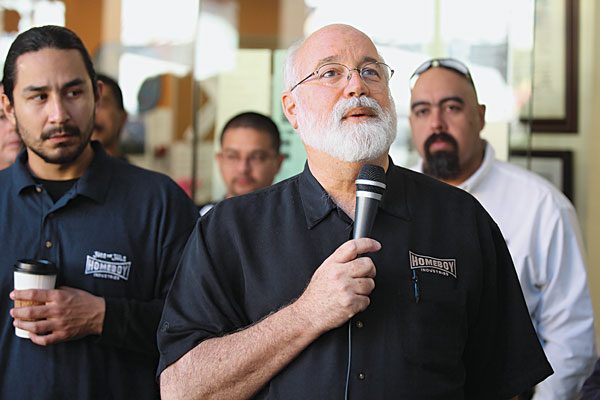
Radical is how the circa 1988-1998 Los Angeles Police Department thought of Boyle. LAPD Deputy Chief Robert Arcos explains, “Father Greg is a legend, but twenty years ago, his approach was incredibly uncomfortable for law enforcement. The tack then was to arrest our way out of the gang problem. But the repercussions of that course were not productive.” Boyle impacted Deputy Chief Arcos directly by influencing the LAPD Jeopardy Program, a cutting-edge intervention program aimed at identifying children at risk for joining gangs, and improving them with tools to increase self-esteem and encourage conflict resolution and goal-setting skills. “Father Boyle has a sense of ease about him; his undercurrent is always trust, respect, and value for life. To a population who feels they have no avenue to opportunity and success, Father Greg’s understanding, compassion, and no-judgment methods have provided invaluable infrastructure and opportunities,” Arcos adds.
Boyle, who acknowledges that Homeboy has come a long way with the LAPD, says, “The progress was slow. It used to be about being tough on crime, but we are about being smart on crime, investing in intervention instead of incarceration.” Once demonized by the Hollenbeck Division, and Chief Daryl Gates’ Operation Hammer, under Chief William Bratton things started to soften; the LAPD began talking about community policing, understanding that they cannot arrest their way out of gang issues. Once that changed, things got even better under current Chief Charlie Beck.
A Lasting Imprint
Homeboy’s imprint of support and evolution lingers long after homies “graduate” from its 18-month training program. Wil Lopez now works as a life coach at the Anti-Recidivism Coalition (ARC), a support network for formerly incarcerated young men and women and advocate for fairer criminal justice policies. ARC is one of many organizations whose goals are inspired by Father Boyle.
“Father Greg has helped not just Los Angeles, but the nation, awaken to the brokenness of our criminal justice system and our most marginalized communities. He knows that we are better than our worst mistake and that everyone deserves the opportunity for redemption, healing, and personal growth. Father Greg has been enormously impactful in the work that I do with young people transitioning home from incarceration. He taught me to always let our members know that we are here to support them, ‘no matter what,’” explains ARC Communications and Community Director Cheryl Bonacci.
Humility asks the poor, what would help you? Hubris says, here’s what your problem is, here’s what you need to fix. I try to listen; the key is to stay close to the humble side. They told us what they need—tattoo removal, therapy, jobs, education, and compassion—that’s how we evolved.
State and federal officials agree. Senators Kamala Harris of California and Rand Paul of Kentucky introduced the bipartisan Pretrial Integrity and Safety Act legislation, aimed at encouraging states to reform their money bail policies. “Whether someone is detained before trial should be determined by whether they’re a risk, not whether they’re rich,” says Senator Harris. “Americans should be able to expect fair and equal treatment under the law regardless of how much money is in their pockets or how many connections they have,” explains Senator Paul. California Governor Edmund G. Brown Jr., Chief Justice Tani Cantil-Sakauye, Senator Bob Hertzberg, and Assemblymember Rob Bonta announced they are committed to working together on reforms to California’s bail system that prioritize public safety and cost-efficiency—SB 10, the California Money Bail Reform Act of 2017.
When asked how he feels about his influence, or what he is most proud of, Boyle humbly responds, “I don’t do pride, success, or winning. I don’t do legacy. It doesn’t make sense to me.” He considers himself called to the margins to be concretely helpful every day. In fact, the folks at the margins greatly impact him—one homie recently caused Boyle to think differently. While preparing to give testimony in support of a homie facing deportation, his former cellmate informed Boyle that the homie speaks to his mom in Russian, specifying, “He speaks the whole language!” This became a new way of thinking for Boyle. “What if we spoke the whole language of love, hope, and bright promise, rather than just giving lip service. We should be fluent in this language.” With annual gang-related homicides down from 1,000 in 1992 to 300 now, Homeboy’s fluency in the whole language has clearly made a singular impact on public safety.






































